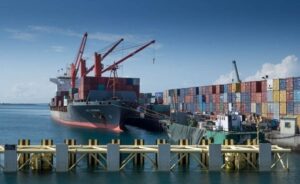The Organization of African Union (OAU) established Africa Environment Day in 2002, to be celebrated on March 3, as a way of raising awareness on the pressing environmental challenges facing the continent.
In January 2012, the African Union (AU) adopted a decision calling for the joint commemoration of African Environment Day and Wangari Maathai Day on 3rd March, in recognition of the work and life of the late Professor Wangari Maathai, who dedicated her life to promoting environmental conservation and sustainable development in Africa.
Prof Wangari Maathai was a Kenyan environmental and human rights activist and, notably, a woman of many firsts.
Among her key achievements, was the award of a Nobel Peace Prize in 2004 ‘for her contribution to sustainable development, democracy and peace’, making her the first black and African woman to win the Nobel Peace Prize.
Through the Green Belt Movement, she mobilized thousands of women and men to plant tens of millions of trees throughout Kenya.
She led the fight to protect water catchment areas, advocating for the planting of trees; environmental conservation, and women’s rights in Kenya.
Today, the African continent continues to endure serious environmental challenges, including climate change, biodiversity depletion, desertification, land degradation and unsustainable use of finite natural resources.
These remain a serious risk for Africa as they pose real impediments to sustainable development.
The annual celebration of Africa Environment Day/ Wangari Maathai Day is important in that it contributes to raising awareness of pressing environmental challenges for Africa.
It also highlights the importance of environmental sustainability in achieving the continent’s development goals, and the centrality of the continent in these discussions.
The Africa Environment and Wangari Maathai Day showcase good practices in environmental management.
This year’s celebration of Africa Environment and Wangari Maathai Day has additional significance as indicated by the theme: ‘Circularity as a Solution to tackling Climate Change, Biodiversity Loss and Pollution’















